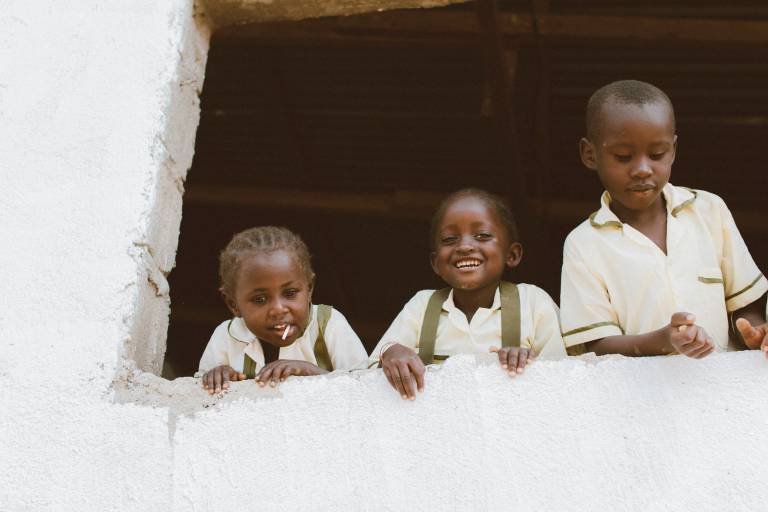Governments need to do more to deliver quality, inclusive education to all children
13 February 2020
Governments need to do more to fulfil the right to free, quality, inclusive public education for all, according to new research by UCL Institute of Education (IOE).

The new multi-country study launched today (13 February) by the IOE’s Centre for Education and International Development (CEID) and ActionAid assesses how the governments of Malawi, Mozambique, Nigeria and Tanzania are performing in delivering education for all.
The research, led by Professor Elaine Unterhalter, is one of the first studies to use the Abidjan Principles to assess States’ progress and the impact of private provision on the right to education.
The Abidjan Principles are a reference point focusing on the human rights obligations of states to provide public education and to regulate private involvement in education. They were adopted in February 2019 in Abidjan, Côte d’Ivoire by a group of leading human rights experts.
The new study finds that despite all four countries having constitutional commitments and obligations to provide for the right to education, this is being interpreted as providing any form of schooling. This neglects states’ obligations to provide a public education system that supports nine years of free quality schooling for all, without discrimination, segregation or demands on parents to pay any fees.
Using the Abidjan Principles, the analysis reveals that these conditions are not in place and there has been a largely unregulated growth of the private sector.
Despite widespread buy-in to achieve targets outlined in Sustainable Development Goal (SDG) 4 on education, the report’s findings show that governments in all four countries are falling short of their obligations. This is leading to an increasing loss of trust in the public education system and a growing demand for private schools, which in many cases are neither regulated, nor monitored.
The research also shows that even low-cost private schools are charging fees that are unaffordable to the poor and cannot truly be said to be offering a better alternative to state provision for the most marginalised children.
Despite governments’ commitments to prioritise education, the sector continues to be underfunded. Even where budget allocations reach or exceed the benchmark of 15-20% of the national budget recommended in the Education 2030 Framework for Action these amounts may still be insufficient if the overall size of national budgets do not increase.
In addition to providing specific analysis for Malawi, Mozambique, Nigeria and Tanzania, the report also highlights comparisons and contrasts between the four countries and provides a series of recommendations for Governments, Civil Society Organizations, the Donor Community and researchers.
The findings and implications for the right to education were discussed at the event by staff at the IOE and ActionAid.
Professor Unterhalter said: “The start of 2020 alerts us that we have only ten years in hand for leaders to meet the Sustainable Development Goal 4 commitment on free quality education for all children by 2030. Our report on education provision in Malawi, Mozambique, Tanzania, and Nigeria shows that governments need accountability processes to assess whether principles on rights to education, enshrined in their constitutions, are a reality on the ground.
“Our research study indicated the Abidjan Principles provide a clear framework to assess whether obligations are being met. Using this approach, drawing on human rights law, presents new opportunities for social researchers in education and human rights lawyers to work together to support work to realise Sustainable Development Goal 4.”
David Archer, Head of Participation and Public Services at ActionAid said: “If people are to be able to hold their governments to account for financing equitable and inclusive education, we need to increase four things that begin with ‘S’: we need a fair share of national budgets, a good size of overall budgets, a sensitive allocation and effective scrutiny.”
Links
- Read the report: ‘Private education and compliance with the Abidjan Principles: A study of Malawi, Mozambique, Tanzania and Nigeria’
- Centre for Education and International Development
- Department of Education, Practice and Society
- View Professor Elaine Unterhalter’s research profile
- ActionAid
 Close
Close

